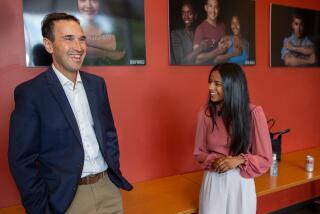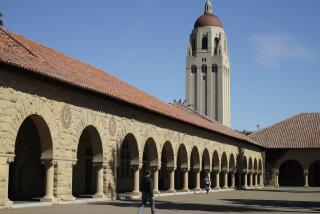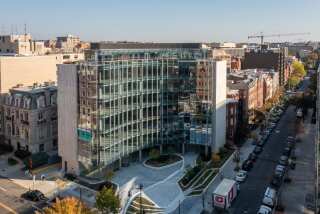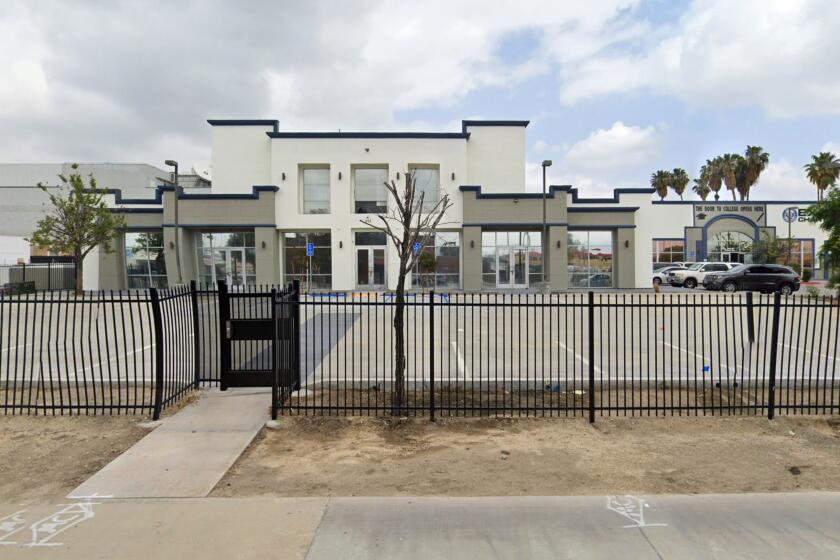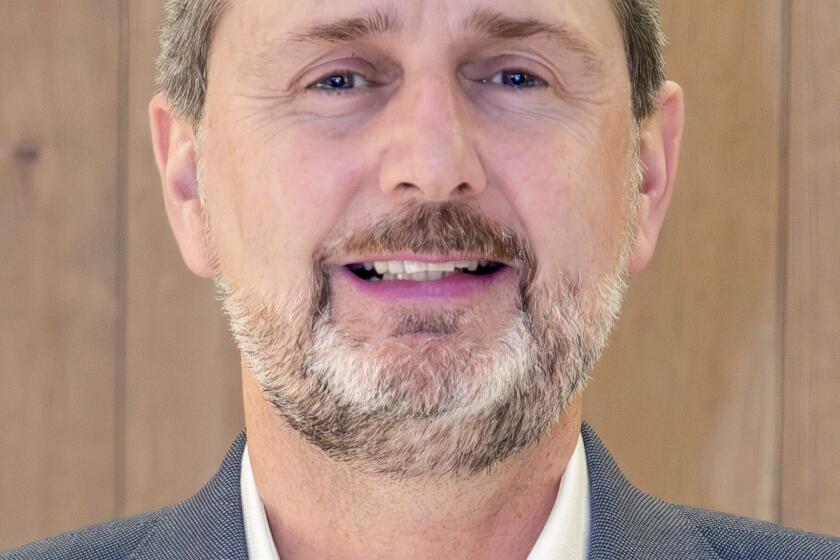Developers, philanthropists and a Pulitzer-winning novelist will help choose USC’s next president
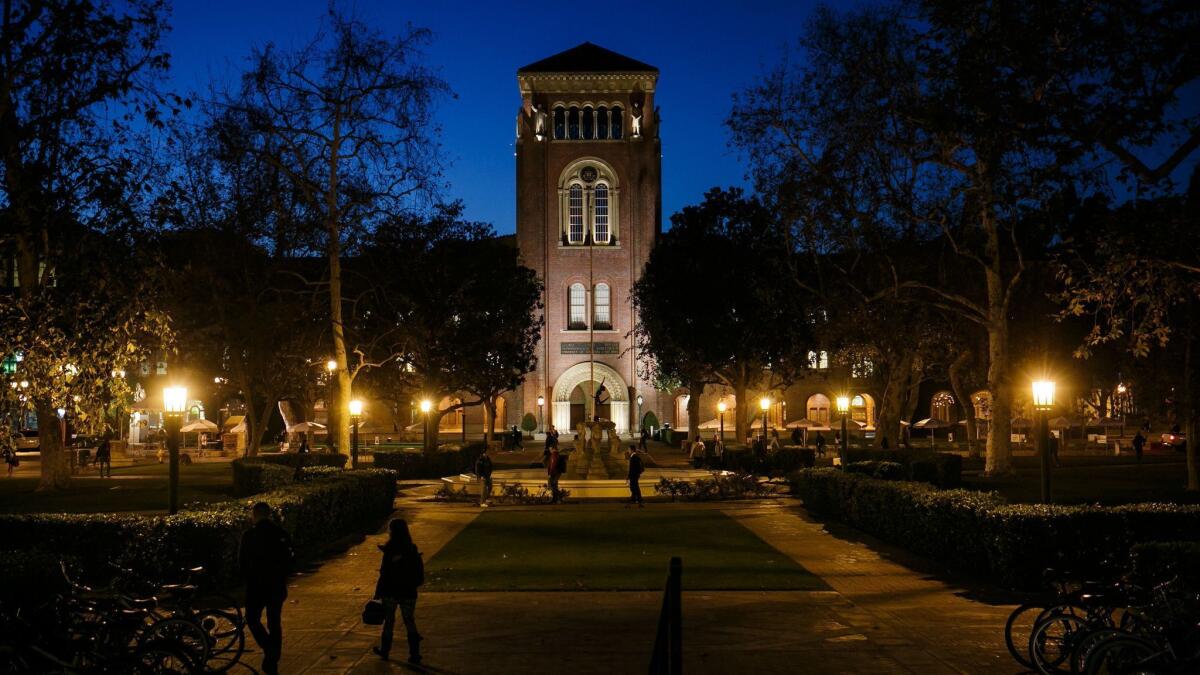
The diverse group charged with selecting USC’s next president includes a former Goldman Sachs executive, a prominent social worker, a Pulitzer Prize-winning novelist and the founding CEO of the nation’s largest health benefits company.
Rick Caruso, the billionaire developer leading the search committee, said Tuesday that the 23 faculty members and trustees on the panel reflect a broad spectrum of views but have the singular goal of choosing a leader who can guide the university out of a series of damaging scandals.
The committee includes Viet Thanh Nguyen, winner of the Pulitzer Prize for fiction and a tenured professor; Thomas J. Barrack Jr., a real estate developer who has prominently supported President Trump; David Bohnett, a tech entrepreneur and philanthropist; and Elizabeth M. Daley, the dean of USC’s School of Cinematic Arts and the longest-tenured dean at the university.
The committee’s task is to sift through candidates and identify the successor to Dr. C.L. Max Nikias, who resigned this summer after revelations by The Times of sexual misconduct allegations against the longtime campus health center gynecologist, Dr. George Tyndall. The newspaper’s reporting catalyzed a wave of public criticism of Nikias’ leadership and triggered mounting litigation against USC.
“This is a monumental moment for the future of our university and we commit to this undertaking with the utmost faith, trust and confidence,” Caruso said in a letter that named the committee and outlined the search process. He said the group would use “as much time as needed” to pick a president.
Dr. Wanda Austin, the former chief executive of the Aerospace Corp. and a USC alumna, was named interim president this month and serves on the search committee.
The sprawling private university has about 45,000 students, tens of thousands of employees, a vast healthcare enterprise in partnership with Los Angeles County and an annual budget that approaches $5 billion. The president post’s unique challenges are compounded by the revelations about Tyndall, who has been accused of sexually harassing and abusing scores of young women during their gynecological exams over a career that spanned nearly three decades.
Hundreds of women came forward after The Times documented the record of complaints about Tyndall and recounted in graphic detail their experiences on his exam table. Tyndall, 71, has denied wrongdoing, but L.A. County prosecutors are evaluating dozens of cases for possible criminal charges.
Caruso, who took over as chairman of the Board of Trustees in May, said in Tuesday’s letter that the process of replacing Nikias will include multiple chances for the community to participate. The search committee has launched a website to provide updates, collect nominations of prospective candidates and gather feedback via an online questionnaire.
The committee will also hold forums on campus for students, alumni, faculty and staff.
“There are ‘listening sessions’ where you can directly share your views and recommendations,” Caruso said of the forums.
Although several alumni sit on the committee, none of the members is a student now — a move that current and former students criticized.
“After numerous scandals that sacrificed student safety, you choose not to include a student voice on the presidential search committee,” said Rini Sampath, a former student body president, on Twitter. “This is a grave mistake.”
William Tierney, a USC professor who studies governance in higher education, praised how Caruso assembled the search committee and communicated the group’s work.
“He has listened, and he’s a good listener,” Tierney said. “There will always be nitpicking. No search committee is perfect. Some will say the staff are not on the committee. Some will say a student is not on the committee. But this isn’t the United Nations. This is a committee that would pass muster at any major university.”
Twitter: @MattHjourno
More to Read
Start your day right
Sign up for Essential California for news, features and recommendations from the L.A. Times and beyond in your inbox six days a week.
You may occasionally receive promotional content from the Los Angeles Times.
